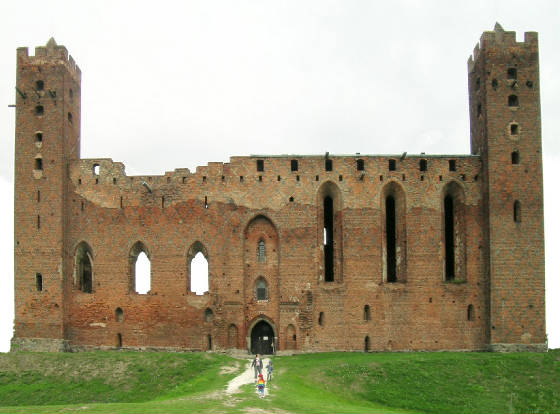


The Seige of Bartenstein - 1264
Siege of Bartenstein was a medieval siege laid upon the castle
of Bartenstein (now Bartoszyce in Poland) by the Prussians during the Great Prussian Uprising. Bartenstein and Rößel
were the two major Teutonic strongholds in Barta, one of the Prussian lands. The castle endured years of siege until 1264
and was one of the last ones to fall into the hands of Prussians. The
garrison in Bartenstein numbered 400 against 1,300 Bartians who lived in three forts surrounding the city. Such tactics
was very common in Prussia: build your own forts so that any communication with the outside world would be cut off. However,
at Bartenstein the forts were far enough to allow the castle to send out men on raids of the surrounding area. Local noble
Miligedo, who showed the Knights secret ways in the area, was killed by the Prussians. The Knights managed to burn down all
three forts when Bartians were celebrating a religious holiday. However, they soon returned and rebuilt the forts.

Bartenstein was running
out of supplies and no help was coming from the headquarters of the Teutonic Knights. They had already eaten their horses,
so the only way to escape was on foot. Therefore they decided to trick the Prussians in order to gain lead. The Knights remained
silent inside the castle and did not ring the bell for church service. Such silence tricked the Bartians to believe that the
soldiers had fled and they came to examine the castle. Once they were close enough the Knights attacked them with arrows and
stones. This was repeated three times, and when the Knights actually fled, they left one old blind man behind to ring the
church bell. This allowed them to gain several days and safely reach Königsberg and Elbing. Other
castles at Wistotempil, Schippenbeil, and Kreuzburg felt sometime in 1263. The castles presented a definite threat to the
Bartians and Warmians, who had to keep their armies at home and could not participate in wider uprising.
